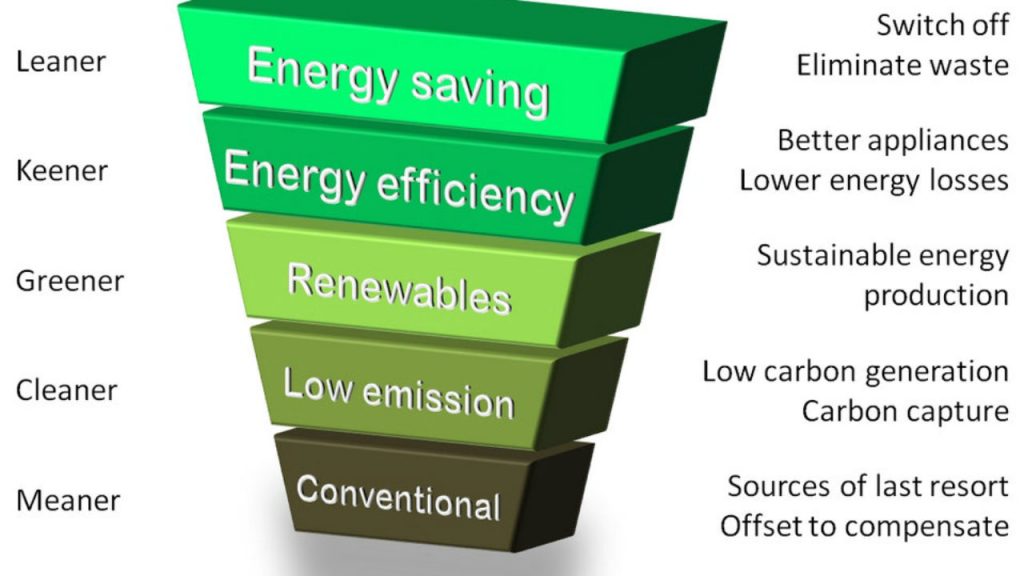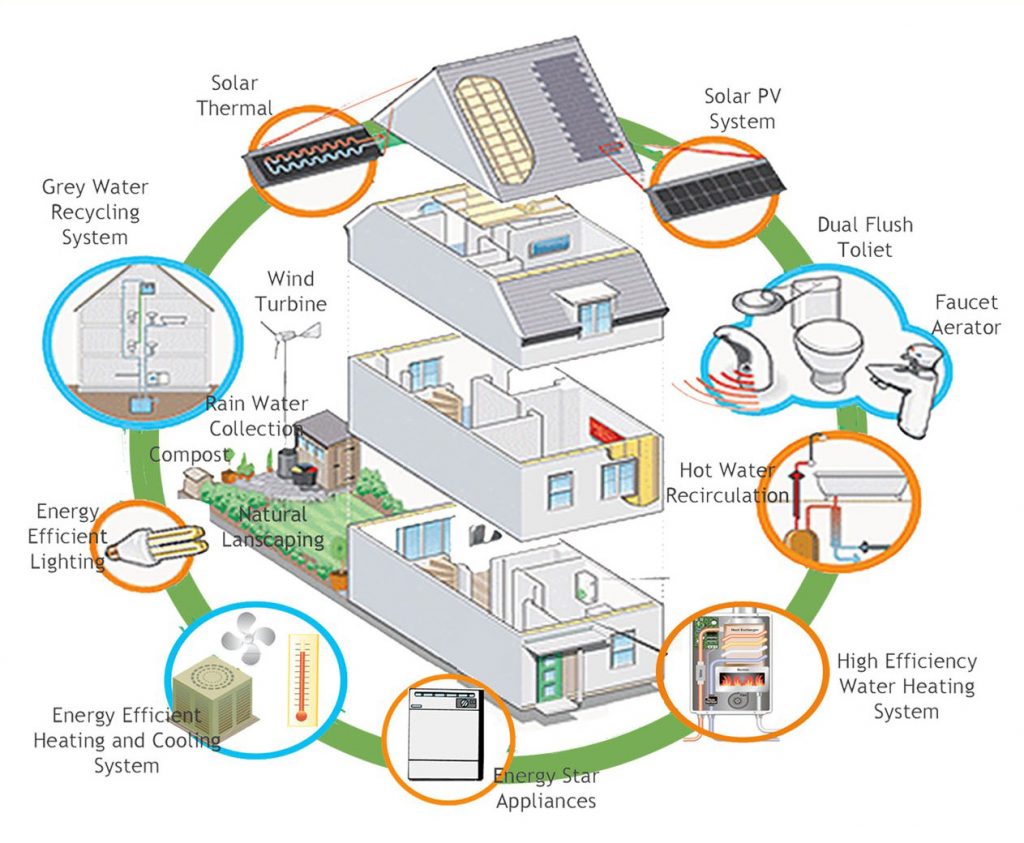Let us do a test! You will have to answer the questions below with a simple yes or no, and you can assess yourself at the end of the questions regarding your energy efficiency. Ready? Do you care about the current global problems such as global warming, air pollution, the energy crisis, etc.? Have you ever actively contributed or at least had a strong desire to resolve these global issues? If not, are you someone who is simply waiting for someone else to act on these issues?
Earth is our home. Therefore, resolving global problems is a collective mission that every one of us needs to contribute to. Every year on the 1st Wednesday of October, Energy Efficiency Day is celebrated with the goal of involving the community in this collective mission by educating the community on one potential solution to several global problems.
Energy Efficiency as a Potential Solution
By definition, energy efficiency is the practice of utilizing less energy to perform the same task. In other words, energy efficiency is about eliminating the wasting of energy. Efficient energy consumption is one of the fastest and cheapest ways to meet the rising demand for energy. It is also a potential solution to air pollution. Furthermore, energy efficiency can also cause reductions in utility bills. In fact, since the beginning of the Energy Efficiency Day in 2016, the message of the day has been as simple as “Cut carbon, Save money, Breathe easier” which sums up the above-mentioned gains from efficient energy usage.
So, what exactly is energy efficiency? This is a question worth asking because the concept of energy efficiency is often confused with the concept of energy conservation. “Energy Conservation” is a practice that reduces energy consumption. Even though the two concepts appear to be similar, there are significant differences. Let us consider some examples to sort out the two concepts.
In your childhood, you probably might have been asked by your parents to switch off the lights whenever you leave the room. Is this an example of efficient energy usage? No, it is not. Switching off lights when they are not in use is a practice to conserve energy. It is not about energy efficiency because when the lights are operating, they still consume the same amount of electricity. Energy efficiency would address an issue like this in a different manner, involving new technologies that require less energy. An energy-efficient 11-15 Watt LED bulb will consume 75% less energy compared to a 50-60 Watt incandescent bulb that provides the same light output. Therefore, replacing traditional energy-inefficient bulbs with LED or CFL bulbs that require less energy is an ideal example of an energy efficiency measure.
Let us consider an elevator for another example. If you want to conserve energy, you can use stairs instead of the elevator. However, for you to be energy efficient, you can make a habit of using the elevator with more people at a time rather than using it alone.

Environmental and Economical Benefits of Energy Efficiency
Today, a significant proportion of electricity generation, even in Sri Lanka, is attributed to thermal power plants which burn fossil fuels like coal. Burning fossil fuel is the major contributing factor to the emission of greenhouse gases such as carbon dioxide. Greenhouse gases (GHG) are gases that are capable of absorbing infrared (IR) radiation and thereby trap heat in the atmosphere. The high accumulation of GHG causes the greenhouse effect, which eventually leads to global environmental issues such as global warming and climate change.
So, what will happen when you use energy efficiently? Efficient energy usage will result in less energy (or electricity) consumption. Therefore, the need for electricity generation will be reduced. Thus, it will reduce the amount of fossil fuel burning in the power plants and consequently reduce GHG emissions that lead to the above-stated problems. Fossil fuels are sometimes burned directly for various purposes, such as heating of buildings, heating of water, etc. Efficient energy usage will also help reduce direct GHG emissions related to these purposes. In summary, engaging in energy efficiency practices will effectively contribute to reducing the individual’s carbon footprint.
Electricity generation via fossil fuel burning not only releases greenhouse gases but also releases other harmful air pollutants like particulate matter, oxides of nitrogen and sulfur, etc. Therefore, less energy production achieved by efficient energy usage will help reduce outdoor air pollution as well. Moreover, any energy efficiency practice that leads to a reduction of harmful gaseous emissions from home appliances will improve indoor air quality.
Indoor air pollution is a serious threat to human health as it promotes diseases such as respiratory diseases, cardiovascular diseases, allergies, etc. Therefore, improvement in air quality can be considered an important gain from efficient energy usage. Efficient energy practices that are aimed at improving insulation and ventilation in a building have also been found to have positive consequences on both the physical and mental well-being of residents.
As mentioned earlier in this article, energy efficiency is one of the ways to address rising energy demand. According to ACEEE (The American Council for an Energy-Efficient Economy), energy efficiency could provide 1/3 of the total expected energy requirements by 2030. In other words, it eliminates the need for 487 large powerhouses.
From the point of view of consumers, the main motivation for adopting energy efficiency measures is the potential energy savings that will result from the cut in their utility bills. From the point of view of a business, cost reductions, reduced risk of energy price fluctuations, improvement of brand reputation, and improvement of the working environment for employees can be some of the benefits. Energy efficiency will also create jobs! When there is a higher demand for energy-efficient products and services, new businesses will be created, and thereby new jobs will also be created.
Energy efficiency benefits the economy of a country in numerous ways. In many countries, there are subsidiary schemes for energy-efficient products, as they will help reduce energy imports from foreign countries and also slow down the rate of depletion of natural domestic energy resources.
Points to Ponder…
Energy efficiency do not require a change in your lifestyle
Contrary to what the majority think, energy efficiency practices do not require a high degree of sacrifice that compromises our comfort or quality of life. Energy efficiency is all about optimizing your daily processes that involve energy.
Energy efficient options are worth investing
Usually, efficient alternative options come with high price tags. Therefore, the energy-efficient options might not cause an instant savings of money if the cost of implementation of new energy-efficient technologies offsets any anticipated financial gains from saving energy. However, the accumulated utility savings over time from efficient energy upgrades may have the potential to offset the implementation costs in the long run. Therefore, take away the message that energy-efficient options are worth the investment!
Rebound Effect
This is a situation where improving energy efficiency saves less energy than it was expected in the beginning. But how can this crisis occur? The crisis occurs when the demand for energy services does not stay constant. That is, if the demand for energy consumption increases with the declining prices of energy services, it eventually will cause fewer energy savings than anticipated. For instance, let us say fuel-efficient vehicles reduce travel expenses due to the implementation of energy-efficient technology. Even though the ultimate expectation of the energy-efficient implementation was to reduce energy usage, what if the consumers choose to drive long distances unlike before, as now the travel expenses are reduced? If this additional energy usage on long-distance driving offsets any potential energy savings anticipated in the beginning, then it causes the “rebound effect”.

Let’s be Energy Efficient!
So, how can we be energy efficient? Some believe that replacing a few appliances at random with energy-efficient appliances would result in significant energy savings and, as a result, significant utility bill savings. Well, it is not the case. To procure considerable utility savings, you might have to consider a more strategic approach that targets the significant sources of energy waste at your home or organization. More interestingly, in this kind of strategic approach, there is a possibility for you to discover more simple ways to improve energy efficiency before going for more complex procedures.
As always, let us consider an example. Appliances that are plugged in even when they are not in use draw power and eventually end up wasting energy. This is called “phantom energy load”. As a result, if you want to be more energy-efficient, you can start with simpler, more problematic areas like this before moving on to more complex, energy-efficient appliances. Smart power strips prevent the plugged-in applications that are turned off from drawing electricity and this will effectively eliminate the wastage of energy.
Likewise, you can conduct a simple energy audit by yourself or with the help of a professional to evaluate the energy efficiency of the house or the organization. Then find out the best ways to improve energy efficiency. Most of the latest versions of appliances, such as freezers, ovens, dryers, dishwashers, and air conditioners use less energy than their older versions. Therefore, replacing old appliances with new, efficient ones will pay off in the long term, even though it might be expensive to purchase.
Industries around the world can be considered as the major energy consumers. The majority of industrial processes are powered by petroleum fuels or electricity. However, industrial processes are so diverse that a generalized possible procedure to improve industrial energy efficiency cannot be assigned. Even so, energy efficiency is a huge requirement for any industry, and it deserves a separate energy management team to search for the best ways to manage energy and improve energy efficiency.
Some of the common ways to improve energy efficiency may include the installation of solar LED lamps, the installation of automated lighting systems based on daylight availability and the room’s occupancy, optimization of air compressors to make sure they do not have leaks that can amount to huge energy wastages, etc.
As of now, you may have a basic idea of how energy efficiency can act as a potential solution to many of the global problems we are currently faced with. Now, it is the time to be active. It’s time for you to take the lead and let others follow you.
Written By:
W.A. Piyumi Uthpala Ruwanmalie,
2nd Year Undergraduate,
Faculty of Science,
University of Colombo.
Reference:
- Energy efficiency and conservation – U.S. Energy Information Administration (EIA). (2020, December 8). Energy Efficiency and Conservation. https://www.eia.gov/energyexplained/use-of-energy/efficiency-and-conservation.php
- Learn More. (2021). Energy Efficiency Day. https://energyefficiencyday.org/learn-more/
- What is Energy Efficiency? (n.d.). About ENERGY STAR | ENERGY STAR. Retrieved September 30, 2021, from https://www.energystar.gov/about/about_energy_efficiency
- Echeverría, D., Roth, J., Mostafa, M., & Gass, P. (2020). Energy Efficiency. In Circular Economy Proxy Measures: Indicators on job effects for a closed-loop economy (pp. 12–14). International Institute for Sustainable Development (IISD). http://www.jstor.org/stable/resrep29240.8
- Health and wellbeing – Multiple Benefits of Energy Efficiency – Analysis. (n.d.). IEA. Retrieved September 30, 2021, from https://www.iea.org/reports/multiple-benefits-of-energy-efficiency/health-and-wellbeing
Image Courtesy:
- Title Image: https://bit.ly/3CZD5Mi
- 1st Content Image: https://bit.ly/3uryMpJ
- 2nd Content Image: https://bit.ly/3ARvSx3



0 Comments